Learning by doing

“It was a great education, but it was just education,” Craig said. “It was just, ‘This looks good on paper.’ But when you go into the world, the first thing people ask is, ‘What experience have you had?’ And I came up extremely short.”
Now a student in Wayne State’s speech-language pathology program, Craig is getting that experience through the program’s student-run clinics. She isn’t alone. From speech therapy and diabetes care to legal aid and support for unhoused patients, the clinics provide real services to real people while offering hands-on career preparation. Under close faculty supervision, students deliver care, solve problems and make decisions they simply wouldn’t face in a classroom.
“These clinics give our students more than hands-on training — they give them purpose. Here, they develop the skills, empathy and adaptability that today’s health care workforce demands,” said Wayne State Provost and Executive Vice President for Academic Affairs Dr. Laurie M. Lauzon Clabo. “They also meet a critical need for accessible care across Michigan. As part of our College to Career initiative, it’s a powerful model of learning that benefits our students and the communities they will one day lead.”
Learning to collaborate: Interprofessional teamwork
At the Community Homeless Interprofessional Program (CHIP), students meet at Detroit’s Cathedral Church of Saint Paul once a month to provide care to unhoused individuals. The needs are wide-ranging, from blood pressure checks to vaccines, physical therapy, and social and legal assistance. Students from pharmacy, medicine, physical therapy, law and social work are placed in interprofessional teams to interview patients and provide education and access to available resources.
“Every team has one representative from collaborating disciplines,” said Dr. Aline Saad, a professor in the Eugene Applebaum College of Pharmacy and Health Sciences and CHIP faculty advisor. “They decide on the dynamics and role distribution: who’s going to initiate the conversation, who’s going to collect data and what information is essential, with the ultimate goal of providing a unified care plan.’”
While simulations and in-class practice prepare students for a variety of scenarios, hands-on clinic work exposes them to the unexpected and encourages interdisciplinary collaboration.
When a recent patient arrived at CHIP two days after being discharged from the hospital without essential seizure medication, student participants sprang into action. The patient had no address, no phone and no easy access to pharmacies. The team navigated a maze of social and systemic barriers to ensure the patient received their medication.
“We had a social work student looking for shelters and housing options. We had a pharmacy student calling the pharmacies that were open to transfer a prescription,” said Saad. “The medical student talked to the physician that discharged the patient. Everyone worked together. If they were on their own, they would not have been able to achieve that as efficiently or timely.”

Opposite: Sydney Cohen, a graduate student in Wayne State’s speech-language pathology program, works with a client at the Speech and Language Clinics.
“There’s a lot of handoff from student to student,” said Dr. Nanette Hannum, assistant professor of physical therapy in WSU Applebaum and a faculty advisor for the DEW Clinic. “They’re learning what their fellow health care professionals need to know from them, and they are getting an edge. They’re going to have that leg up when they go out into the workforce.”
Learning to connect: Client communication and empathy
“We do a whole class on empathy,” said Dr. Kathryn Smolinski, associate professor in the Wayne State Law School and director of the Legal Advocacy for People with Cancer Clinic. “These clients are not only dealing with a legal crisis — they’re also navigating a health crisis. Our students learn how to come to them as fellow human beings.”
“You’re relying on your own ability to build trust,” said Sarah Azam, a recent Law School graduate who worked with the Legal Advocacy for People with Cancer Clinic in fall 2024. “That was one of the most important things that I learned. They rely on you. When I pick up the phone, it’s about saying, ‘Hi, how are you doing today? Tell me a little bit about your week.’ We let them know we’re not just there in a transactional sense.”
Wayne State’s speech-language pathology clinics treat individuals from all walks of life, including young children, individuals dealing with lifelong communication challenges, and those recovering from strokes or other neurological impairments. Trust must be built before treatment can begin.
“You might walk in with this beautiful plan,” Craig said, “but you can’t get anywhere until you get them on board with the emotional side of their deficit. There’s an extra layer of counseling and understanding that goes into it.”
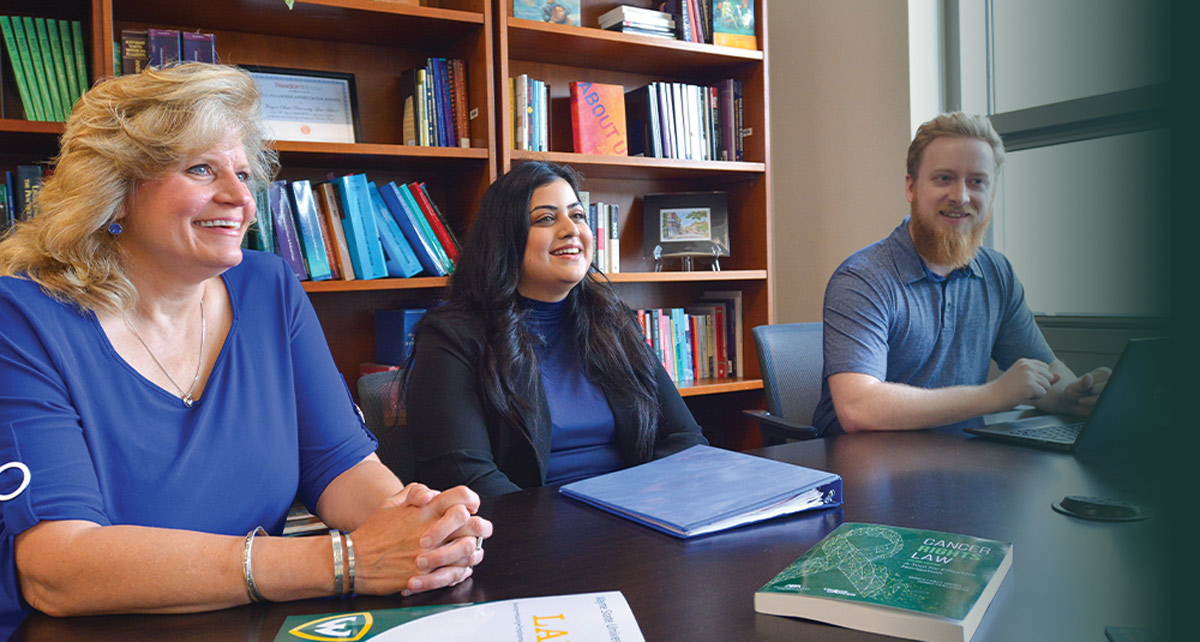
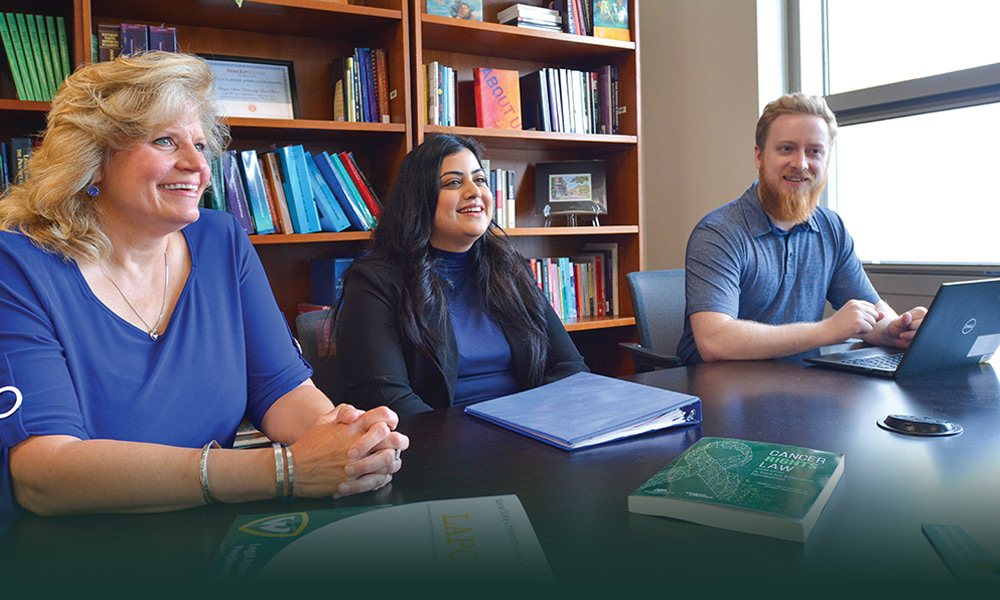

Learning to adapt: Problem-solving and flexibility
“You have a real person sitting in front of you, and they might have a concern that is totally unrelated to the questions that you prepared,” said Hannum. “It’s good for them to sit in that discomfort a little bit and figure out, ‘How do I pivot in real time?’”
That skill is particularly essential for working with individuals who might experience difficulties with transportation, identification or housing. Students must find a way to deliver care to patients — sometimes going to them if they are hospitalized — and anticipate how to resolve real-life complications for which classroom work might not have prepared them.
“If students educate the patients that their medication needs to be kept in a refrigerator and they know the patient has no access to refrigeration, then that recommendation is completely useless,” said Saad. “They have to consider what the patient can actually do and work with them, care providers and others to find solutions.”

Learning to navigate: Systems and advocacy
“Students learn about barriers within the health care system that the patients experience and begin to understand the direct impact of patients’ social determinants of health on their care,” said Saad. “They learn how to advocate for their patients and creatively collaborate to overcome identified barriers.”
As the students delve deeper into the ways that lifestyle, social support and legal requirements relate to health, they prepare to enter the workforce with a better understanding of how their peers on the other side might operate and learn how to cooperate to meet clients’ best interests.
“I’ve seen the work our law students have done with CHIP,” said Smolinski. “Medical professionals sometimes see legal representation as an obstacle to care; when they work together, they see that these students are advocates for getting around insurance obstacles to get better care. And as our students watch the med students interview patients, they get a better understanding of how to talk to people. It makes everyone better prepared for working together in the field.”
Learning confidence: Career preparation that lasts
“The biggest thing I gained was confidence,” said Azam, who is currently preparing to take the bar exam and is lined up for work with a local firm. “I already felt like I could write an essay or give an exam. But you also need to have the confidence within yourself to be able to find the answers.”
“This is a professional training program. They’re training to do exactly what they’re going to be doing when they graduate,” said Tausha Moore, assistant professor-clinical in the College of Liberal Arts and Sciences and director of the speech-language pathology clinics. “Many of our students end up getting jobs through their placements.”
Craig has experienced that transformation personally.
“Mentoring helps,” she said. “Through the clinic experiences I’ve already had in only one year, I’ve narrowed it down to where I think I want to go.”
Clinics at a glance
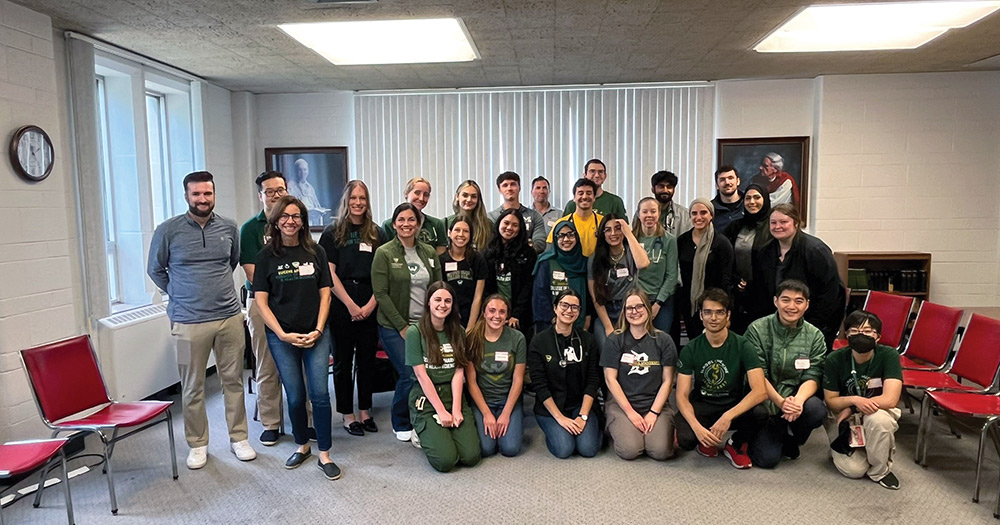
CHIP – Community Homeless Interprofessional Program
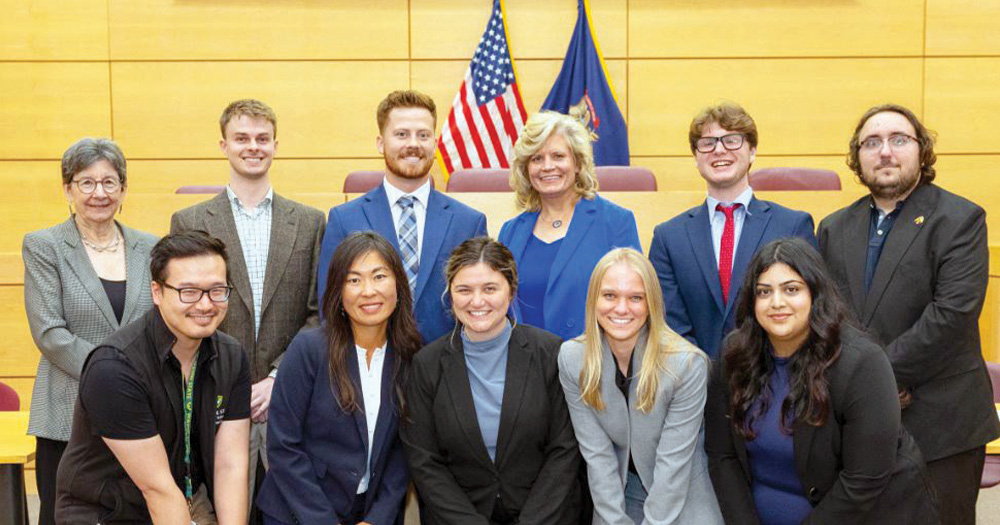
Legal Advocacy for People with Cancer Clinic
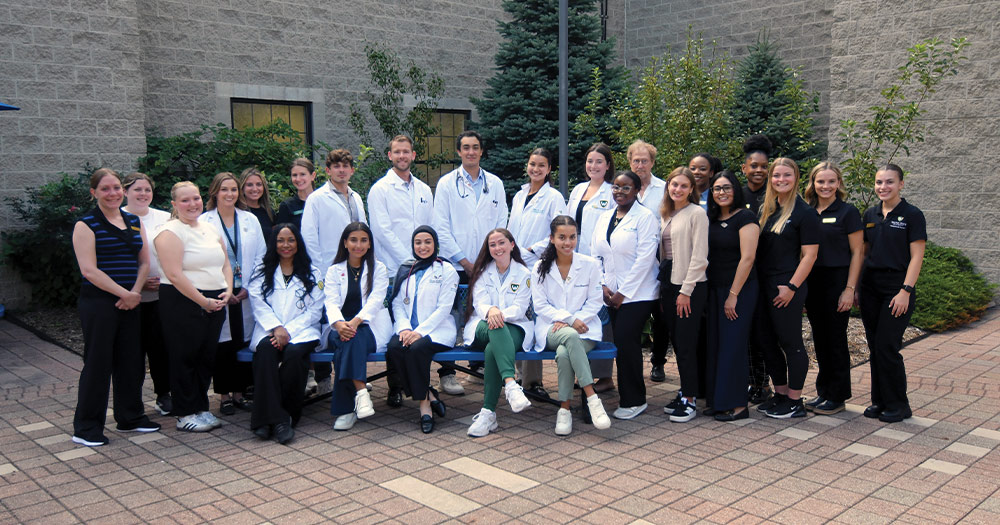
DEW – Diabetes Education and Wellness Clinic
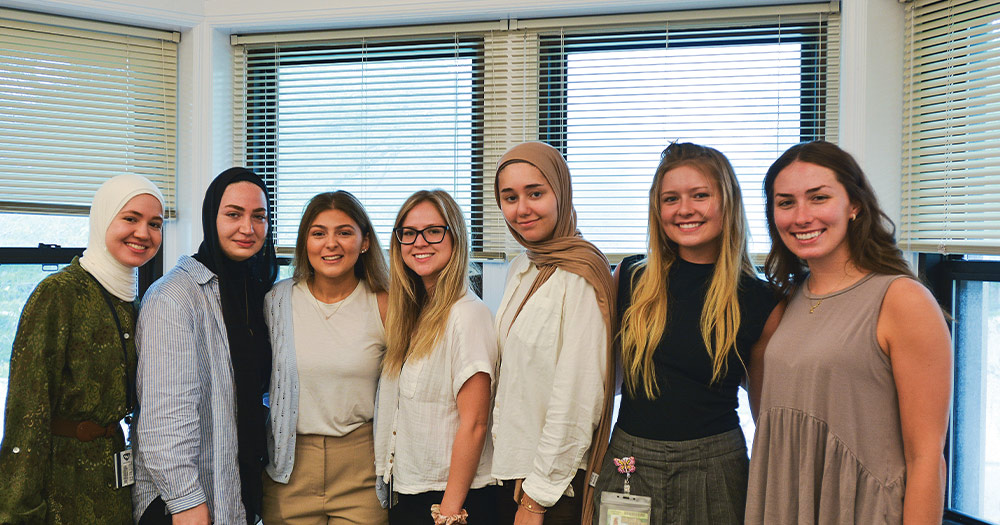
Speech-Language Pathology Clinics
Research with real-world reach
When Dr. Stephanie Morgan entered medical school at Wayne State, she didn’t anticipate that an early interest in obstetrics and gynecology would steer her toward a deeper dive into toxicology research or ultimately lead to a career in internal medicine. But thanks to formative experiences in the lab of Professor of Pharmacology Dr. Michael Petriello, the WSU alumna discovered how research could enhance her academic journey and her clinical future.
In 2024, Morgan presented her work on maternal gut microbiome and environmental toxicants at the Central and Eastern European Conference on Health and the Environment in Greece. The project built on earlier cardiovascular toxicology research she began with Petriello, who first connected with Morgan during a virtual lecture held during the COVID-19 pandemic. She reached out via email, and the mentorship took off.
“He empowered me to do as much as I wanted to or was interested in doing,” Morgan said. “As soon as I was in a better space in research, I sent him an email asking about other projects. He told me about microbiome and pregnancy, and it was super interesting and intertwined with everything I was interested in.”
Morgan said her research experience instilled lasting skills she now carries into her internal medicine residency at Henry Ford Hospital.
“One of the hardest parts of research is dedicating the time to it,” she said. “It grows you a lot as a person — how to see things through and work with a variety of different people and being able to come together all in the name of science.”
Morgan said learning how to interpret statistics, review medical literature, and persist through setbacks — including multiple rounds of manuscript rejection — has made her a more analytical and resilient physician. It’s also informed how she approaches clinical care.
“I counsel my patients on gut health and gut microbiome,” she said. “It is very applicable to what I do.”